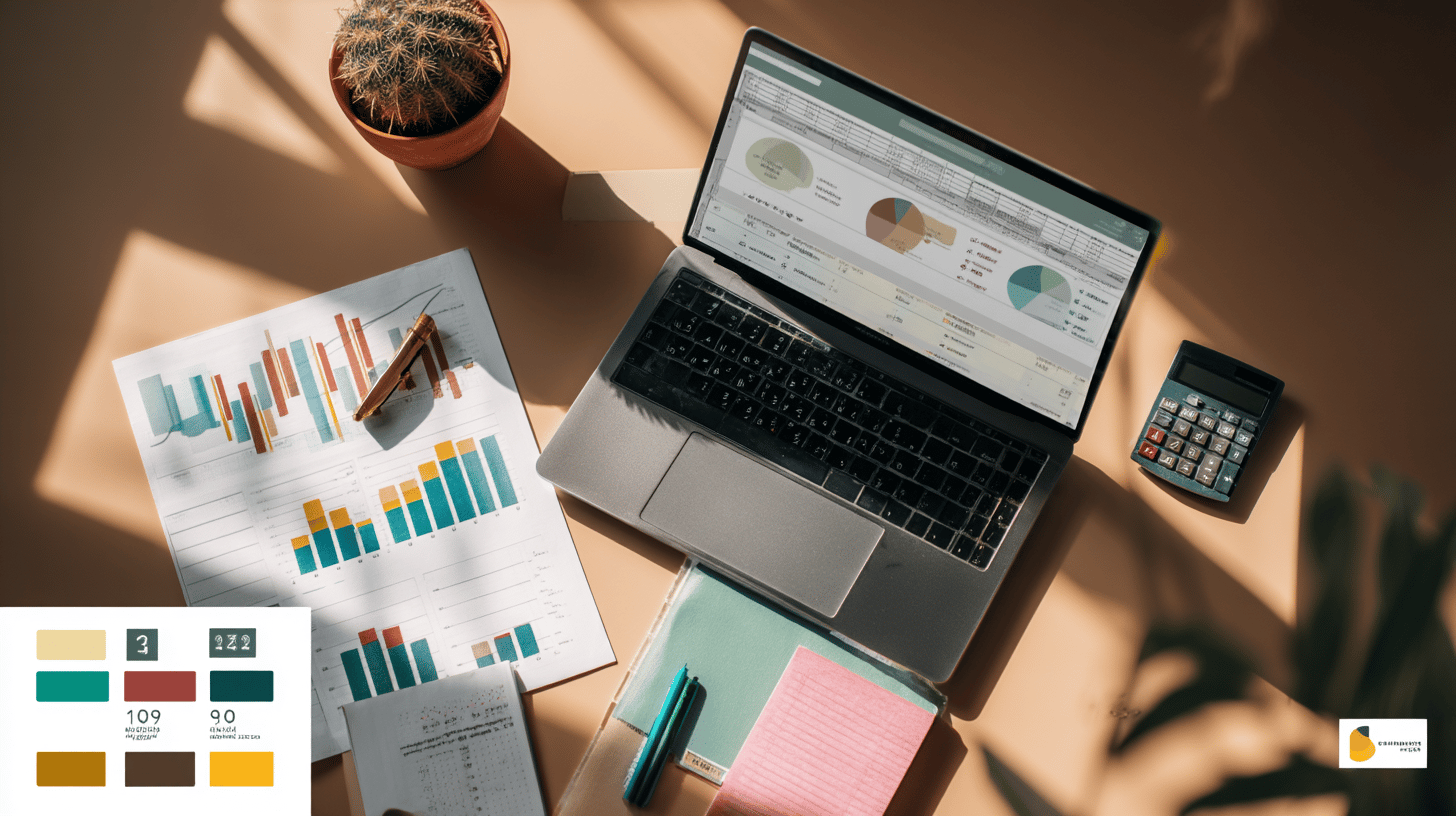Criar um orçamento pessoal eficiente é um passo fundamental para quem deseja tomar o controle de suas finanças. Um orçamento bem elaborado permite que você saiba exatamente onde está gastando seu dinheiro, e ajuda a identificar áreas onde você pode economizar. Neste post, vamos explorar 10 dicas práticas para criar e manter um orçamento que funcione para você.
1. Defina seus objetivos financeiros
Antes de mais nada, é imprescindível ter clareza sobre quais são seus objetivos financeiros. Eles podem ser de curto, médio ou longo prazo, e incluem desde quitar dívidas, economizar para uma viagem ou compra de um imóvel até garantir uma aposentadoria tranquila. Isso vai ajudá-lo a manter o foco na hora de decidir onde gastar seu dinheiro.
2. Conheça seus rendimentos mensais
Para criar um orçamento, é vital ter uma visão clara sobre seus ganhos. Some todas as fontes de renda que você tem, incluindo salário, bonus, rendimentos de investimentos e qualquer renda extra. Inclua também valores que podem parecer pequenos, mas que no final do mês podem fazer diferença. Anote tudo em uma planilha ou utilize aplicativos de finanças.
3. Liste suas despesas fixas e variáveis
As despesas fixas são aquelas que não mudam de mês para mês, como aluguel, contas de luz, água, internet, seguros e parcelas de empréstimos. As despesas variáveis, por outro lado, incluem alimentação, transporte e entretenimento. É importante listar ambas para entender o total que você precisa dedicar mensalmente.
4. Estabeleça categorias de gastos
Para facilitar a gestão do seu orçamento, divida suas despesas em categorias. Categories como alimentação, transporte, moradia, saúde e lazer, ajudam a visualizar melhor onde você está gastando seu dinheiro. Isso pode trazer à tona situações em que você está gastando mais do que deveria. Você pode usar um sistema de porcentagens para determinar o quanto pode gastar em cada categoria.
5. Crie um plano de ação para reduzir gastos
Após entender suas despesas, pode ser que você identifique áreas onde é possível cortar gastos. Procure formas de economizar em suas despesas variáveis. Isso pode incluir preparar refeições em casa, optar por transporte público, ou reduzir a frequência de saídas para restaurantes. Avalie também se você realmente precisa de certos serviços, como assinaturas de streaming ou academias, e pese se eles estão valendo a pena.
6. Utilize a Regra 50/30/20
Uma abordagem fácil e eficaz para a criação de orçamento é a regra 50/30/20. Segundo esta regra, você deve destinar 50% de sua renda para necessidades (moradia, alimentação, transporte), 30% para desejos (lazer, entretenimento) e 20% para economia ou pagamento de dívidas. Essa estrutura dá uma boa visão sobre como dividir seu dinheiro de maneira equilibrada.
7. Acompanhe seus gastos regularmente
Criar um orçamento não é apenas uma tarefa única; é um processo contínuo. Portanto, monitore seus gastos com frequência e faça ajustes conforme necessário. Existem diversos aplicativos de finanças que podem ajudar você a acompanhar seus gastos em tempo real, facilitando o ajuste no orçamento mensal.
8. Reavalie seu orçamento periodicamente
Periodicamente, é importante reavaliar seu orçamento. Anualmente ou semestralmente, leiajuste suas metas financeiras e veja se suas despesas mudaram. Isso é especialmente importante se você tiver variações significativas na sua renda ou se alterar seus hábitos financeiros. Um orçamento que funciona hoje pode não funcionar no futuro.
9. Prepare-se para emergência
Ter um fundo de emergência é essencial. Reserve uma parte do seu orçamento mensal para criar ou manter um fundo de emergência que cubra de três a seis meses de despesas. Isso proporciona segurança financeira caso aconteçam imprevistos, como perda de emprego ou despesas médicas inesperadas.
10. Seja flexível e paciente
Por último, mas não menos importante, seja paciente consigo mesmo. Criar um orçamento e mantê-lo pode levar tempo e prática. Algumas nuances financeiras podem surgir, e nem sempre você vai conseguir seguir o plano à risca, e tudo bem! O importante é ajustar e continuar aprendendo com o processo.
Conclusão
Um orçamento pessoal eficiente é uma ferramenta poderosa que pode ajudá-lo a alcançar suas metas financeiras. Ao definir seus objetivos, compreender sua renda e gastos, e ser proativo na redução de despesas, você estabelece as bases para um futuro financeiro mais seguro e tranquilo. Lembre-se, o orçamento deve ser uma reflexão constante da sua vida financeira, então revise-o regularmente.
Após a implementação dessas dicas, convide seus amigos a conhecer este post e comece a sua jornada em direção a uma vida financeira saudável!

